With Support from The Rockefeller Foundation and Outrider Foundation, 52 U.S. Students Engaged in International Development Fellowships in Africa, Southeast Asia, and Latin America.
Last summer, fifty-two American undergraduate and graduate students had the opportunity to support communities in Africa, Southeast Asia, and Latin America as part of the NextGen Service Fellowship. The fellowship—supported by The Rockefeller Foundation and Outrider Foundation and managed by IIE—connected the fellows with organizations focused on in-demand fields such as public health, economic development, sustainable agriculture, and education.
We asked six fellows to share the most compelling aspects of their fellowship experiences and how those experiences enhanced their understanding of international development.
Joshua Cain, University of Kentucky
Fellowship Location: Ecuador
Host Organization: Centro de Salud Hombro a Hombro clinic and Shoulder-to-Shoulder Global Medical Brigade
Field of Study: Doctor of Physical Therapy
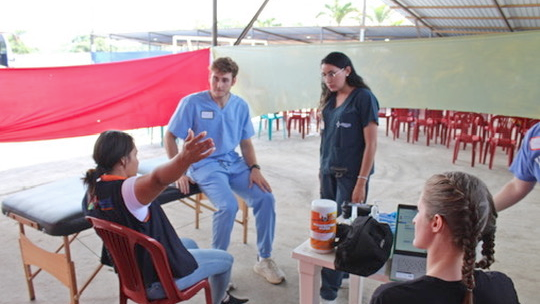
Part of my internship this summer involved creating and leading exercise classes at a clinic, Centro de Salud Hombro a Hombro. We worked with two groups: one made up of individuals with chronic health conditions such as hypertension and diabetes, and another younger group, with whom we focused on prevention. We held one to two classes per day, tailoring the programs to the participants’ responses. This required adapting exercises by progressing or regressing the difficulty in real time, which greatly improved my critical thinking and prescription skills.
As a future physical therapist, this experience reinforced the importance of meeting people where they are, rather than trying to force a rigid program that may not fit their needs. These classes also gave me deeper insight into the health challenges faced by local communities. Health literacy was not widespread, and conditions like hypertension and diabetes were common. Something as simple as access to proper footwear was a major barrier, often leading to additional musculoskeletal issues. While the health care system in the United States is not without flaws, this experience made me more appreciative of the resources available to me at home. More importantly, it taught me to think critically about the cultural and socioeconomic contexts that shape health outcomes. This perspective will help me as a clinician to treat the whole person, not just their diagnosis.
Tryphene Bulape, Boise State University
Fellowship Location: Thailand
Host Organization: Save the Children Thailand
Field of Study: Social Work
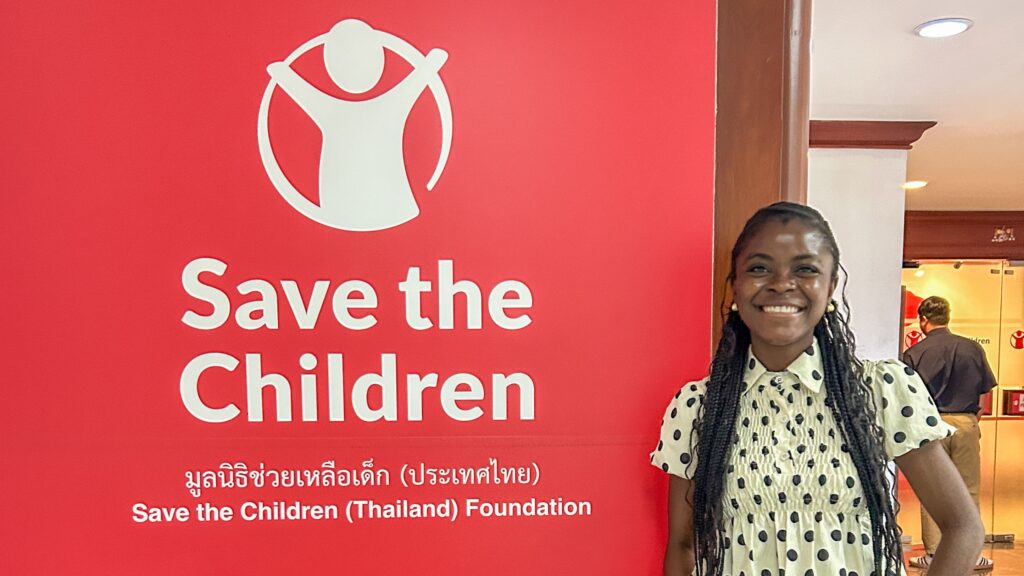
This experience gave me insight into how many moving parts it takes for an organization to be successful. We were small teams working within a larger mission, and that gave me a perspective on just how challenging and demanding this work can be.
Someone I met during my fellowship, who greatly impacted me, was a fellow intern placed in Mae Sot, a city that shares a border with Myanmar. Hearing about her experience working at the border with students from Myanmar and learning about students’ very limited opportunities to receive a formal education was extremely eye-opening. I also learned a lot about nationalism and the different ways countries display their priorities when balancing fairness between host communities and incoming refugees.
Jamal Washington, Columbia University
Fellowship Location: Colombia
Host Organization: Fundación Innovación para el Desarrollo (FIMASD)
Field of Study: International Affairs
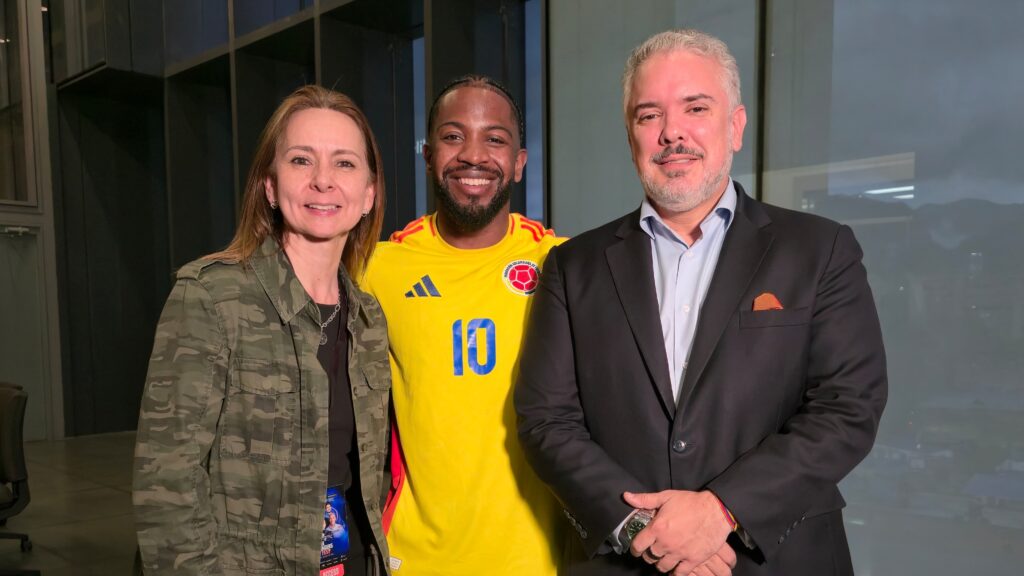
Coming from Columbia’s School of International and Public Affairs (SIPA), I was eager to put theory into practice, but I quickly realized that the realities of working in Colombia required more than U.S.-centric policy knowledge. Above all, it required intentional listening, creativity, and flexibility. I have grown tremendously from navigating intercultural challenges in real time.
A particularly unique aspect of my fellowship was the chance to meet former Colombian President Iván Duque, who founded FIMASD, the non-partisan think tank that hosted me. Conversing with him about the current affairs of Colombia — and even celebrating his birthday with him — offered incredible insight into the issues Colombia faces and the vision behind FIMASD. Hearing directly from him about the role of youth, innovation, and policy in Colombia’s future added depth to my understanding of the institutional space I was contributing to, and it was inspiring to see how ideas at the highest levels connected with the student-led initiatives I was evaluating.
Julia Vogel, University of Wisconsin–Madison
Fellowship Location: Indonesia
Host Organization: Green Moluccas
Field of Study: International Affairs

I interned at Green Moluccas this summer, a sustainability and disaster management non-profit. The most compelling part of their work is how they bring all of this together: education, direct action, and collaboration. It really showed me that even with limited resources, you can create momentum for a cleaner, healthier, and more sustainable future.
On a personal level, this experience also completely shifted how I think about grassroots environmental work. It reminded me that small, practical steps such as teaching kids or creating a local recycling system can add up to something much bigger over time. These efforts may not sound flashy, but they build the foundation for long-term change. And honestly, seeing that in action was both humbling and motivating. Green Moluccas showed me that real change starts with community, creativity, and a lot of heart, and I left feeling so grateful to have been a small part of it.
Noah Willsea, Clemson University
Fellowship Location: Ethiopia
Host Organization: PHE Ethiopia Consortium
Field of Study: Agriculture
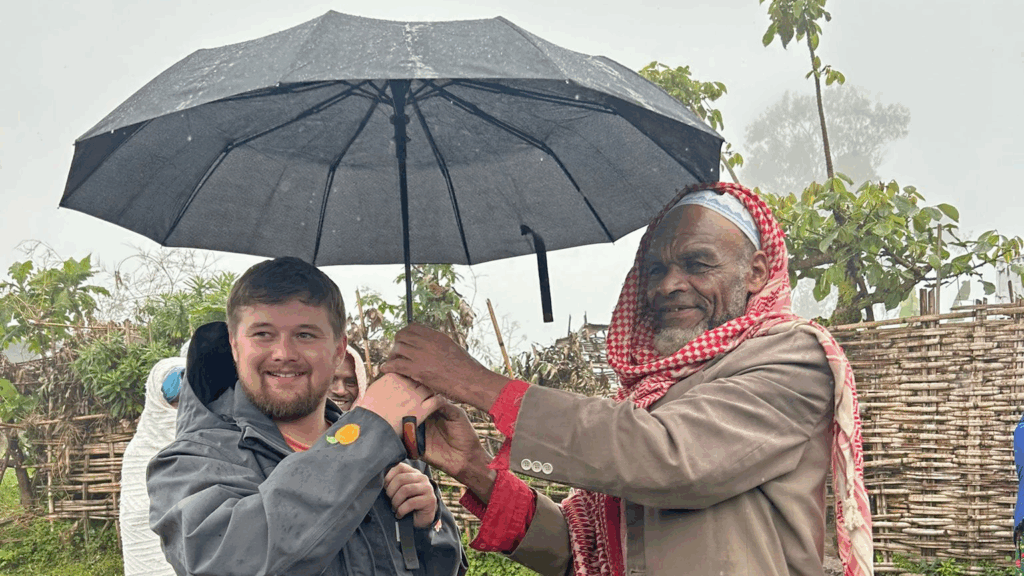
I interned with the Population, Health and Environment Ethiopia Consortium (PHEEC), which serves Ethiopia through sustainability and health programming.
The biggest lesson I learned was that sustainability is not one-size-fits-all. Even in America, the term sustainability gets thrown around without much thought in a lot of different cases, but in Ethiopia, the problem was really glaring to me.
Western ideas of sustainability were often thrown into situations where they just do not quite fit. For example, in the U.S., I studied the environmental challenges associated with the overuse of synthetic fertilizer.
However, in many parts of Ethiopia, most farmers do not have access to synthetic fertilizer, and their main agricultural concern is being able to produce enough food to feed their family and survive the year. Frankly, there are big challenges that require comprehensive solutions.
Looking back, however, I am grateful to have borne witness to the amount of hope among the Ethiopian people and those who serve them. I also valued the deep sense of community I observed and participated in—not just among my coworkers but also local community members and visitors. They often drank coffee together, ate meals together from a shared plate, listened to local music, taught me new words from their languages, and looked after each other’s children. Working side by side, people build friendships and memories that may not continue for more than a few moments but will certainly continue in one another’s prayers.
Kahtara Harris, Johns Hopkins University
Fellowship Location: Mexico
Host Organization: Otros Dreams en Acción
Field of Study: Communications and Journalism
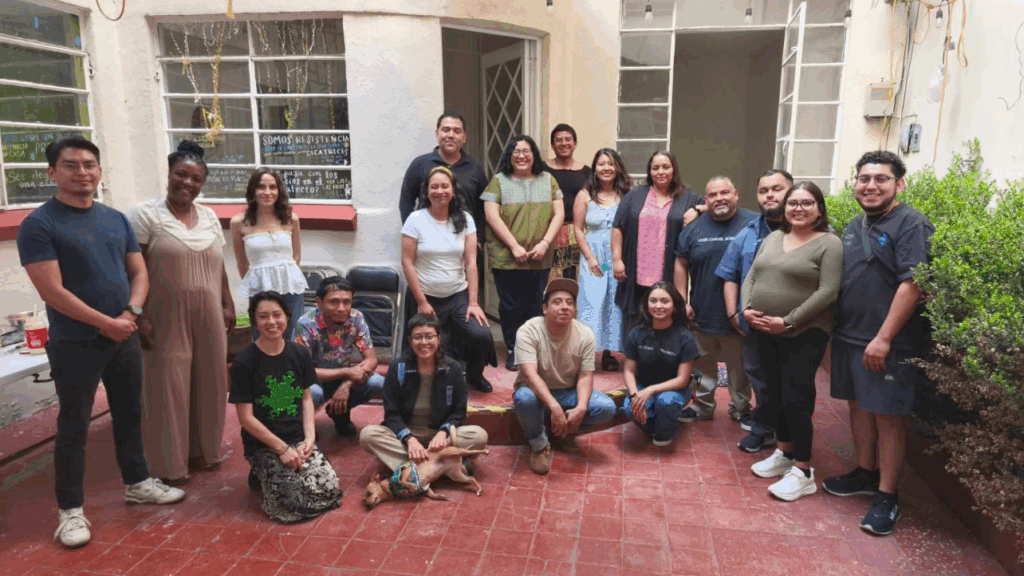
My main project involved tracking and cataloging ODA mentions and interviews in the news, which gave me a front row seat to how their voice reaches the broader public. It was steady, behind-the-scenes work that gave me a new appreciation for the daily operations that keep a nonprofit running. Beyond this work, my fellowship included weekly training led by an outside organization. These sessions pushed me to think differently about equity, leadership, and collaboration across cultures. I also looked forward to our weekly “family meals,” where staff and fellows came together around food. That time was just as valuable as the formal training.
Looking back, I see my month in Mexico City as more than a fellowship. It was a chance to be welcomed into a workplace that shared responsibilities, culture, and community. ODA made me feel included from the first day, and IIE created the platform that allowed me to step into this experience in the first place. I came away with stronger skills, new friendships, and a clearer view of how nonprofits function across borders. Most of all, I left with gratitude for the team that shared their work with me, and for the opportunity to contribute, however small, to something so necessary and powerful.
The NextGen Service aims to inspire and equip the next generation of American public service leaders through immersive, hands-on experience working in and with communities around the world, including Sub-Saharan Africa, Southeast Asia, and Latin America and the Caribbean. Learn more: https://www.iie.org/programs/nextgen-service-fellowship/
